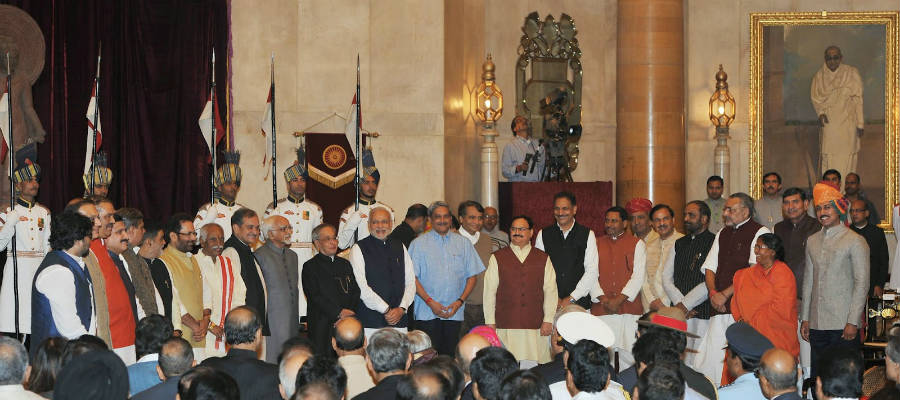BY KRISHNARAJ RAO
A PIL challenging the appointment of Maharashtra’s former Chief Secretary Ratnakar Gaikwad as its Chief Information Commissioner was filed in Bombay High Court, and mentioned today before Chief Justice Mohit Shah.
The petition is next listed for hearing on 4th October 2012.
The PIL (91 of 2012, Krishna Harischandra Rao versus State of Maharashtra) is filed by five prominent RTI and good-governance activists. The four others are Sulaiman Bhimani, G R Vora, Mohammad Afzal and Anil Galgali.
Click here to read the entire petition
The petition contends:
“This petition is filed in order to quash the prejudicial selection and appointment by State of Maharashtra of a new Chief State Information Commissioner (Chief SIC) in violation of Right to Information Act 2005, the Constitution of India, and the Principles of Natural Justice, particularly, ‘Nemo iudex in causa sua’ i.e. ‘No man is permitted to be judge in his own cause’. The person appointed as Chief SIC, Mr Ratnakar Gaikwad (hereinafter referred to as Respondent no 2 or R2), was former Chief Secretary of Maharashtra, and enjoyed a privileged and influential position vis-à-vis the high powered committee that selected him for this appointment. Indeed, he was the de facto appointing authority, as the Governor of Maharashtra is only nominally the appointing authority. R2 used this position to his own advantage, and virtually selected and appointed himself as Chief SIC, with the help of other respondents.”
The petitioners contend that Gaikwad was himself at the center of a small inner circle responsible for conducting the selection process whenever vacancies arose. Despite scores of applications lying before him, he deliberately sat on the files, neglected this duty, and left the office of the Chief SIC vacant for over 10 months, so that he could occupy this office immediately after his retirement. He left as many as three other benches of SICs vacant for periods ranging from 4 to 16 months.
“The documents available indicate that this was a deliberate action,” says Sulaiman Bhimani, who procured the documents under RTI. “Exactly six days after his retirement from the post of Chief Secretary, a meeting of the High Powered Committee (Respondent 5) was convened, exclusively for the purpose of selecting R2 for the post of Chief SIC,” his petition states. The appointment of Gaikwad undermines this statutory institution, and is a flagrant violation of the Fundamental Rights of citizens guaranteed by Articles 14 and 21.
“The respondents have neglected the duty cast upon them by Article 50 to ensure the separation of the Executive and the Judiciary,” the petition states.
The petition contains documents that reveal how the Chief Secretary was part of the selection and appointment mechanism of the government, and how, after leaving the position vacant for over 10 months (after retirement of the former Chief Information Commissioner Vilas Patil in July 2011), Gaikwad himself applied for the post on 29th May, two days before retiring from the post of Chief Secretary. The appointment letter issued on 8th June carries the signature of Chief Secretary Jayant Banthia (Ratnakar Gaikwad’s successor) along with that of the Governor, indicating that the Chief Secretary was himself an appointing authority.
The petition further contends that:
“Although the Right to Information Act is only seven years old, it has revitalized the citizens of our 65-year-old democracy. The hopes of crores of people from different walks of life, including government employees, aged pensioners, members of underprivileged sections of society, and anti-corruption crusaders, are now pinned on the use of Right to Information… The quality of people’s access to such information under RTI is therefore a matter concerning their fundamental right to Life and Liberty.
Hence, the injustice does not end with the appointment. It is the beginning of a long series of unjust decisions that will corrode the fundamental rights of citizens, fabric of our democracy. In his present capacity as Chief SIC, R2 is poised to be “judge in his own cause” during his five-year tenure. R2 will directly hear cases relating to the Maharashtra government departments in Mantralaya, which he himself headed in earlier years as Chief Secretary. He will also hear cases against MMRDA (Mumbai Metropolitan Region Development Authority) and other state government bodies that he headed in earlier years, violating the principles of natural justice.”
Without any cooling-off period, Gaikwad was appointed immediately upon his retirement from the position of Chief Secretary. This removes the necessary at-arms-length distance between the State Government and the Maharashtra State Information Commission, and leaves the citizens with a biased tribunal, depriving them of equality before the law and equal protection of the law in the case of Right to Information Act. This infringes on the Life and Liberty of the common man,” the petition stresses.
The petitioners’ main prayer is quashing of this untoward appointment. Such quashing has an ample precedent in ‘Centre for PIL versus Union of India’ [WP 348 & 355 of 2010], wherein the Supreme Court quashed the appointment of Mr PJ Thomas as Chief Vigilance Commissioner as the grounds of his selection was “non-est in law”. “The selection of Ratnakar Gaikwad violates many guidelines articulated by Hon’ble Chief Justice of India SH Kapadia in his judgment,” Sulaiman Bhimani said.
Also Read:
(Krishnaraj Rao is an RTI activist. The opinions expressed by the author and those providing comments are theirs alone, and do not reflect the opinions of Canary Trap)

